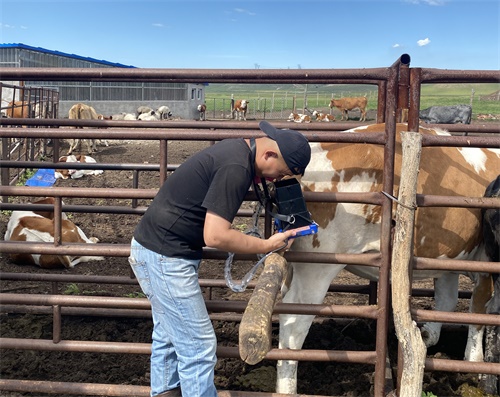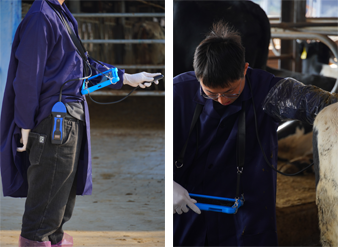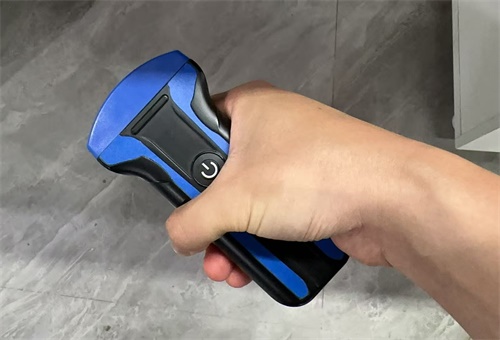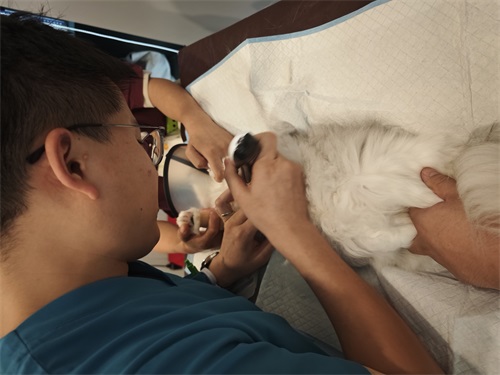When veterinarians step into a barn, a clinic, or even a remote farm, they face one big challenge: how to make accurate diagnoses quickly and without stressing the animal. Traditional medical equipment is often bulky and requires the animal to be transported, which can cause additional discomfort. This is where portable Veterinary ultrasound machines come into play. But the real question is, can these devices truly improve animal care in a significant way? The short answer is yes, but the reasons are worth exploring in detail.

How Portability Changes Veterinary Practice
One of the strongest advantages of portable veterinary ultrasound machines is their mobility. Unlike large cart-based systems found in hospitals, these compact devices can be carried in a bag or even attached to a smartphone or tablet. For veterinarians who travel to farms or handle field emergencies, portability is not just convenient—it is essential.
Imagine a dairy farm where a cow shows signs of reproductive issues. Instead of transporting the cow to a distant clinic, the vet can bring the ultrasound directly to the animal. This saves time, reduces stress for the animal, and allows immediate decision-making. In the long run, this level of accessibility leads to better herd management and healthier livestock.
Accuracy and Diagnostic Value
Skeptics sometimes wonder whether smaller, portable machines can match the accuracy of larger systems. The truth is, modern portable ultrasound units are equipped with advanced imaging technology that delivers high-resolution images. While they may not always match the detail of premium hospital-grade devices, they are more than sufficient for most veterinary needs.
For example, detecting pregnancy in sheep, goats, or pigs does not require the same level of resolution as monitoring a complex human heart condition. Portable veterinary ultrasounds offer clear images for reproductive checks, abdominal examinations, and basic cardiac evaluations. This balance between portability and accuracy makes them practical tools in everyday veterinary work.

Cost-Effectiveness for Clinics and Farmers
Cost is another area where portable veterinary ultrasound machines make a big difference. Traditional ultrasound machines designed for human hospitals can cost tens of thousands of dollars. For many small animal clinics or livestock farms, that investment is unrealistic. Portable veterinary devices, on the other hand, are far more affordable.
This cost advantage allows smaller veterinary practices and even individual farmers to access diagnostic imaging. By lowering the barrier to entry, portable ultrasound machines help democratize animal healthcare. Animals that previously would have gone without proper diagnosis now receive timely and effective medical attention.
| Factor | Portable Veterinary Ultrasound | Traditional Cart-Based Ultrasound |
|---|---|---|
| Mobility | Lightweight, handheld, easy to carry | Large, requires fixed setup |
| Cost | Affordable for clinics and farms | High investment, often unaffordable |
| Imaging Quality | High enough for most veterinary needs | Superior detail, hospital-grade imaging |
| Field Use | Excellent for on-site farm visits | Limited, not designed for mobility |
| Animal Stress | Minimal, scanning done on-site | Higher, animals must be transported |
Applications Across Different Species
Portable veterinary ultrasound is not limited to one type of animal. Its flexibility makes it useful across a wide range of species. For large animals such as cattle and horses, ultrasound can be used to monitor reproductive cycles, detect pregnancy, and diagnose abdominal conditions. In smaller animals like dogs and cats, it can help identify organ problems, bladder stones, or even early tumors.
What makes portable systems especially effective is that they allow the veterinarian to adapt to the animal’s size and anatomy. With different probe options, one device can handle both small pets and large livestock. This multi-species adaptability is one of the reasons why portable ultrasound machines are becoming a standard tool in veterinary medicine.
Reducing Animal Stress During Diagnosis
Animal welfare is a critical part of modern veterinary practice. Transporting animals, especially large livestock, for diagnostic imaging can cause significant stress. Stress not only affects animal behavior but can also interfere with accurate diagnosis. By bringing the ultrasound machine directly to the animal, vets minimize handling and reduce the stress associated with transportation.
For instance, in equine care, horses often resist being moved to unfamiliar places. A portable ultrasound allows the vet to conduct scans in the horse’s stable, keeping the environment calm and familiar. This not only makes the procedure smoother but also improves diagnostic reliability because the animal is more relaxed.
Training and Ease of Use
Another benefit of portable veterinary ultrasound machines is their user-friendly design. Many models feature intuitive touchscreens, wireless probes, and simplified software tailored for animal anatomy. This means that veterinarians and even trained farm workers can quickly learn to use them.
Ease of use is particularly valuable in rural or resource-limited areas where access to specialized veterinary services is scarce. Portable machines empower more people to perform basic checks, with veterinarians providing remote consultation when needed. This kind of telemedicine support is becoming increasingly popular in animal healthcare.

Limitations of Portable Ultrasound
While portable devices offer many advantages, it’s important to recognize their limitations. They may not always provide the same image resolution as larger, hospital-grade machines. For complex cases, such as detailed cardiac imaging or advanced abdominal scans, a full-sized ultrasound system may still be required.
Battery life is another limitation, especially in field conditions where charging may not be convenient. Some portable devices also have smaller screens, which can make interpreting subtle details harder. However, technology continues to improve, and newer models are addressing many of these challenges.
Future of Portable Veterinary Ultrasound
The future looks bright for portable veterinary ultrasound. As technology advances, these devices are becoming more powerful, more affordable, and even more compact. Integration with smartphones, cloud storage, and AI-assisted image interpretation (for vets, not replacing them) is already happening.
For farmers and clinics, this means more reliable diagnostics at their fingertips. For animals, it means less stress, quicker care, and better health outcomes. Portable ultrasound machines are not just tools—they are becoming essential companions in modern veterinary practice.
Conclusion
So, can a portable veterinary ultrasound machine improve animal care? Absolutely. By combining mobility, affordability, and reliable imaging, these devices are reshaping how vets work with animals. They bring diagnosis closer to the patient, reduce stress, and open doors for better treatment across species. While they may not replace larger hospital systems for every situation, their role in everyday veterinary medicine is undeniable.
link: https://www.bxlimage.com/nw/1295.html
tags: portable veterinary ultrasound animal care vet ultrasound machine livestock pregnancy scan veterinary imaging portable ultrasound benefits veterinary diagnostic tools







